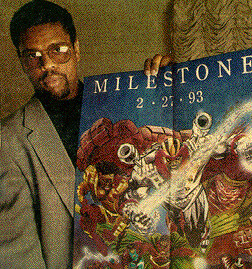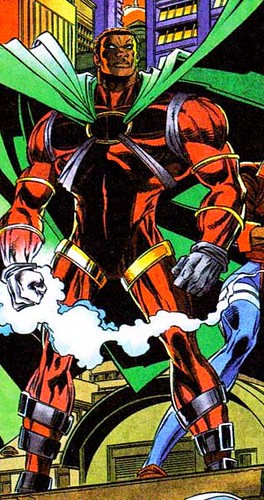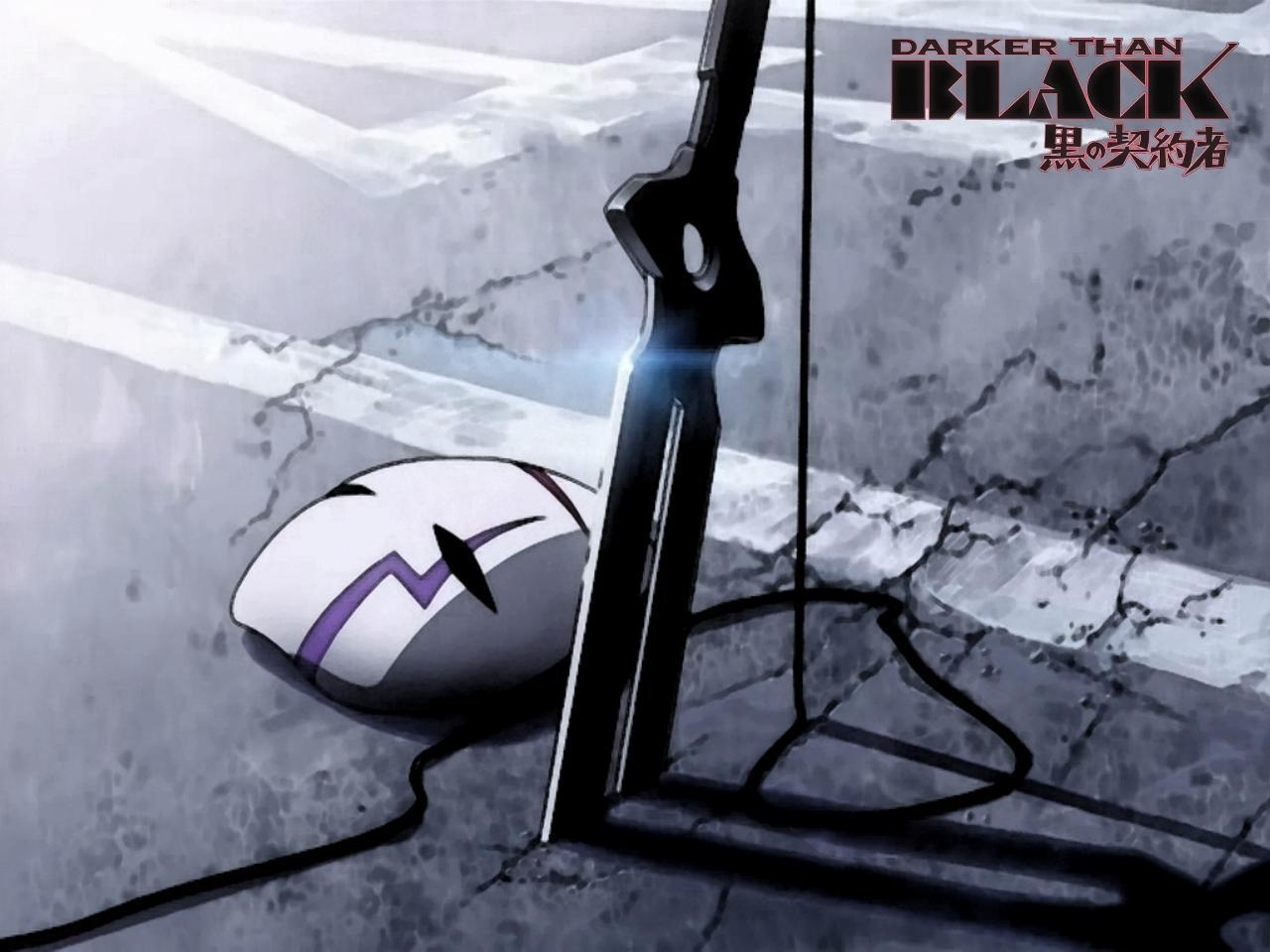REAL LIFE: Addio, Maestro
28.2.11
, Posted by Geoff Thorne at 23:41
 |
| DWAYNE MCDUFFIE |
I picked up my normal stack of stuff, the Xs, the Legions, the Avengers and the Knights in the Dark.
This was in the time when new companies were popping up all the time and, though smaller than the so-called Big Two, were offering some pretty competitive work. Elementals. Grendel. Mage. Elfquest. Hellboy A Distant Soil. Nexus.
Too many to mention, really, to anyone who doesn't already know.
The world of comics was undergoing a sea change at that time, decentralizing, giving more and more power to the creators rather than to their editors (a dubious blessing in some cases) and, in some few instances, actually challenging long held notions of what might make a go in the marketplace.
So my stack included a good many of these because, though I was much younger than I am, I was already old then in the multiverse of comic books and reaching that edge where they just would no longer easily satisfy. Some people might call that edge the end of adolescence but I call it pattern recognition.
For many years by then I'd become increasingly dissatisfied with the way people who look like me- brown skin, predominantly African descent- were treated in the medium I loved. As a child I had loved the damned things without regard to their social meaning and influence. I followed the Bat and the S, the 4 and most of those who came after, never realizing that, despite the wide variety of color and experience in the real world, a world in which I lived, the world of comic books was a Klansman's wet dream– Four colors of white.
It was the work of industry Great Will Eisner, his Spirit in particular, that pulled me up short and hard.
This was a character I loved created by an artist I loved, to whom I was exposed via a large-sized, hardcover book called THE GREAT COMIC BOOK HEROES.
I loved the characters in that book so so much I wanted to find all their adventures wherever I could. This was during a time when comics weren't valued so much so, early on, it was relatively easy to put hands on certain ancient comics if one was ready to dig a bit.
So I dug. So I found and so I read. So I met Ebony.


I won't bore you with how he was depicted, how he spoke, what an hideous portrayal of people like me he was, though not as bad as his replacement, a lovely yellow fellow called Blubber.
Ebony was the first but by no means the last of this sort of version of black people which was only slightly worse than the general absence of decent black people in comics. Or really, non-whites of any sort.
It was pretty ugly and it hit me in the face like a freight train. My heroes were part of the same ugliness that was, at the time increasingly becoming part of my real life.
The older I got, the more real that ugliness became, more pervasive and more subtle. This created in me (and thousands of others) a sort of cognitive dissonance as I (and they) attempted to resolve the vicious contradiction of love for the various heroes and rage and hatred for their chroniclers who seemed intent on spitting on me who had only ever wanted to bask in the glow of their adventures.
Love won out but it was not without a cost. There was always this simmering undercurrent, a sort of gnawing expectation that oscillated between hope and dread as I waited for the next depiction, knowing it would likely be ugly but never knowing the degree.
Once in a great long while a reasonably decent character might appear (mostly in Marvel comics, nearly never in DC) they were nearly always in the background of the Important Whites, weaker, not as smart, never the point of the story and nearly never the hero.
But love won, as I said, and I sucked up this constant insult, pretending mostly not to notice unless the offense was so pointed it could not be ignored.
"That's what comics are," I told myself. "But, as long as they don't actually mention non-whites, they're not truly being offensive."
I made myself content with invisibility as the better of two evils. I was a child and didn't know that one was the same as the other. But I was content enough.
Until I met ICON.
"Finally," I thought as I poured over the pages. "Finally someone got it right."
I don't need to describe the actual books to you. They're out there and I recommend finding them. The point is every story was written and drawn by people who either were relatively well-known at the time or weren't but went on to greatness after the company let them show their stuff.
It was also the first comic book I ever felt compelled to write a so-called fan letter.
It was then that I met Dwayne McDuffie for the first time.
As I said, comics were (and largely remain) a wasteland when it comes to non-whites and here was an entire line of comics for the rest of us and for whites as well. It was, as Dwayne himself proved to be, an entirely benign response to a fairly ugly situation- building something new instead of railing against the injustice of the existing paradigm.
Sadly, this was met with hostility by the so-called "industry media" of the day, painting the books as diatribes against the wrongly characterized "mainstream" industry (they were not) created by poor artists and writers (again, not so).
McDuffie, one of the two or three black writers that had ever managed to score work at either of the Big Two, persevered, telling the truth of his work to anyone who would listen and moving forward as if simply telling the truth and showing the work would be enough to win. He was, like me, naive about the public he hoped to serve, gifting them with a cleanliness of spirit they did not and perhaps do not possess.
The fledgling stories were, ultimately, rejected by the larger audience and the industry at large, left to fade back into what they could only have thought was rightful obscurity.
I envision a lot of smiles from some men who should consider themselves lucky we will never meet. I get angry, you see. I have an extremely low tolerance for cowards and an even lower for racists. These men were both. And likely still are, those that are still alive, as there has been nothing to change their minds. Indeed, DC comics has gone into clear retrograde over the last couple years, literally killing off the few minority characters that had managed to squeak through.
I would have been incensed by these men, mostly lesser talents, having this sort of control over an industry and using that control to squash something benign and beautiful.
Dwayne was not that way. He was better than that. He simply moved forward, thinking so far outside the box that the thing itself could scarcely be defined as such. He moved on without rancor, without too much anger (though I'm betting there was some. None of us are immune.). Began the climb in another, more broad arena, that of animation. To say he excelled there, where money rather than feelings is the bottom line, is to understate things in the extreme.
He wrote for many series, created others winning award after award until he had carved out a bright career for himself as well as a legion of friends and followers both backstage and in his now more massive audience. I don't know that I could have done this. Maybe I could. But not without some shouting and fist swinging. I'm not made for the path he took however much i see it and recognize it as the better one.
My correspondence with Dwayne grew over the years from that initial few lines, to the sort of web-based friendship that most now take for granted but which, at the time, was rather rare, until finally we met face-to-face and became actual friends, rather than virtual.
And, more than that, Dwayne was a great teacher, never shy to share anything he knew about writing or any of the other endeavors in which we were both immersed. It's not an exaggeration to say, without his input, I would not have garnered the successes I've had. He's one a very select few in that regard but at the top of that list without doubt.
I wish I could have learned the trick that allowed him to take the slings and bullets of his "peers" with such grace, but, as I said, I lack that gene. I hold grudges. I get angry.
Even though he was repeatedly treated poorly by the industry he so loved, he never ceased to believe that simply making something beautiful was the best way to clear out something ugly.
And he was, as always, right.
That first note led to a friendship that started small and grew into something I loved and which continues to this moment despite his current silence and great distance. He's dead now. Taken in a useless random way just as he was reaching the apex of his powers as a writer. We will never never see what amazing things he was to create.
I know for sure he had plans to amaze and was lucky enough to be asked to participate in them but, like the rest of you, I will never know what those things were. he is gone now. For good.
Over the next few weeks people will lionize him and rightly so, but much of that praise will be from the very people who did their best to thwart him when he simply tried to say, with everything he produced, that we are ALL valuable, we are ALL here and we are ALL in this together.
It was true then. It's true now. It always will be true.
Good-Night, Maestro. You will be missed.
copyright © 2011 geoffrey thorne, all rights reserved



Very touching. I'm sorry you lost your friend. I always enjoyed his work.
Geoff, you have captured him here. And my sadness begins anew.